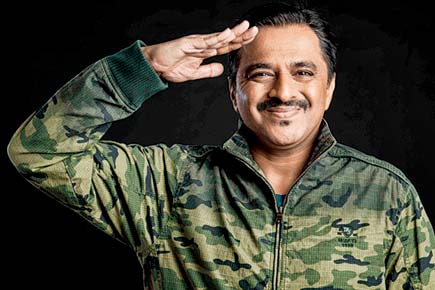A multi-character monologue looks at a tense Valley from three divergent vantage points


Neeraj Pratap Sangani in the role of the Kashmiri Muslim, Kashmiri Pandit and the soldier
ADVERTISEMENT
Kashmir is again seeing one of the longest periods of sustained turbulence. The only information coming from the valley is of disturbing violence and any discussion of the situation in the mainland refuses to be dispassionate. It is in this scenario that Neeraj Pratap Sangani decided to explore different sides of the story and bring to the people of the city a human experience — which according to him very few are willing to engage with — through his play Hum Kya Chahte.

“We need to separate the narrative, cut out the jingoism, understand and address the problem of the people who are living this nightmare — the Kashmiri Pandit, the Kashmiri Muslim and the soldier,” he says. In this monodrama, Sangani himself plays the three roles. “Each character investigates the situation through personal experience,” he says.

The Kashmiri Pandit talks about terror in the valley in the 1990s that led to the exodus of the community from the state. The Kashmiri Muslim man, who aspires to be a teacher and is a fan of Ghalib, is identified as a terrorist for nothing. The soldier, who had always known that he is protecting a territory of India, is now confused.
Sangani says that before writing the play, he had travelled to Kashmir a number of times. “Through these perspectives I wanted to create an awareness about the issue, which I think is very low in a city like Mumbai. People are happy transferring the responsibility to the government and the army,” he says.
The actor and playwright says that he has done a few smaller performances before this but has not faced any kind of resistance. “I do not intend to offend anybody, but it is important to engage with the situation before it goes out of control,” he says. Sangani, who was earlier associated with the theatre group Ekjut feels that today, there is either theatre that is meaningless or that which is done with classic stories from long ago. “I wanted to do something contemporary and important,” he concludes.
 Subscribe today by clicking the link and stay updated with the latest news!" Click here!
Subscribe today by clicking the link and stay updated with the latest news!" Click here!






